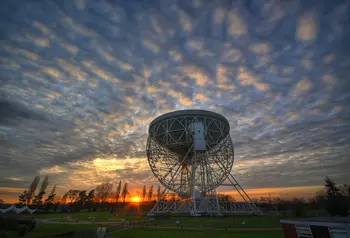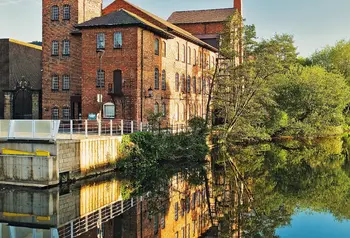British Library pledge to save the nation's sounds secures £9.5m HLF boost

The funding will enable the British Library to digitise and make available 500,000 rare, unique and at-risk sound recordings from its own archive and other key collections around the country over five years (2017-2022).
This support from the Heritage Lottery Fund (HLF) answers an urgent call to save our sounds from being lost forever. Sound archivists estimate that we have 15 years in which to digitise historic sound recordings before the equipment required to play some formats can no longer be used, and some formats such as wax cylinders and acetate discs start to naturally decay.
The £9.5million will enable the British Library to:
digitise and publish online up to 500,000 rare and unique sounds from the Library’s own collections and those around the UK which are most at risk, including local dialects and accents, oral histories and previously unheard musical performances and plays, and vanishing wildlife sounds
work with partner institutions to develop a national preservation network via ten regional centres of archival excellence which will digitise, preserve and share the unique audio heritage found in their local area
run a major outreach programme to schools and communities to celebrate the UK’s sound heritage, and raise awareness of this treasure trove of living history held in archives across the country
According to a recent directory of the UK’s sound collections gathered by the Library, there are over one million sound carriers on dozens of different formats which risk being lost unless they are digitally preserved in the next 15 years.
These sounds range from underwater recordings of killer whales made in the waters surrounding Shetland (held by the Centre for Wildlife Conservation, University of Cumbria), to a collection of sounds held in the Canterbury Cathedral archives spanning 50 years of services, choral and opera performances and other recordings, many of which are thought to be unique.
Roly Keating, Chief Executive of the British Library, commented: “We are extremely grateful to HLF for answering the urgent need to help preserve these precious recordings. Our recent Living Knowledge vision is clear about the scale of the challenge ahead, but today's news is a fantastic vote of confidence in the project. We look forward to working with our partners across the UK to unlock this important part of our shared heritage, making it available to everyone online for research, enjoyment and inspiration.”
Stuart Hobley, Head of HLF London, said: “Historic recordings have a unique quality of bringing into the present the events, sounds and voices from our past. From regional dialects to the call of long extinct birds, HLF support will ensure that the most up-to-date digital expertise will be used to rescue some of the UK’s most vulnerable and rare sound recordings that would otherwise be lost to silence.”
Sounds held by the British Library include:
Famous writers reading their own works, including Lord Alfred Tennyson, Sylvia Plath and James Joyce
Radio broadcasts going back to the 1930s, including Radio Luxembourg and long-defunct pre-war stations such as Radio Lyons and Radio Normandie and scores of unheard early BBC Radio or concert appearances by American blues, gospel and jazz legends such as Louis Armstrong, Sonny Terry and Sister Rosetta Tharpe
A recording which helped to save the bittern from extinction in the UK, as well as many other sounds of British wildlife, coastlines and nature
A huge corpus of slang, dialects and accents recordings of every social class and regional area of the UK, from the 1950’s ‘Survey of English Dialects’ collection which reveals just how far our voices have changed over the past century, to the ‘BBC Voices’ archive containing the diverse voices of contemporary 21st century Britain
Previously unheard musical performances and plays, including Laurence Olivier playing Coriolanus in 1959, and full recordings of theatre productions going back 40 years
Life story interviews with people from all walks of life, from Kindertransport refugees, to second wave feminists and people with a range of disabilities
Notes to Editors
Visit the British Library website to find out more on the Save our Sounds project. #SaveOurSounds
The UK Sound Directory was launched in January 2015 to scope the scale and diversity of sound collections held around the UK. Over one million sound collections have already been identified, and the call for information remains open until 31 May. If you have a rare or unique sound collection, please visit the UK Sound Directory website or get in touch. The final Directory will be published in June 2015, and will provide the largest ever picture of the UK’s sound heritage to date.
The British Library is the national library of the United Kingdom and one of the world's greatest research libraries. It provides world class information services to the academic, business, research and scientific communities and offers unparalleled access to the world's largest and most comprehensive research collection. The Library's collection has developed over 250 years and exceeds 150 million separate items representing every age of written civilisation and includes books, journals, manuscripts, maps, stamps, music, patents, photographs, newspapers and sound recordings in all written and spoken languages. Up to 10 million people visit the British Library website every year, where they can view up to four million digitised collection items and over 40 million pages.
The British Library is home to the UK’s Sound Archive, a treasure trove of living history containing more than 6.5 million sounds including music, spoken word, oral history, wildlife and the environment dating back to the birth of recorded sound in the 19th century.
Further information
Sophie McIvor, Head of Media Relations, the British Library on tel: 020 7412 7990, at evenings and weekends: 020 7412 7150 or via email: sophie.mcivor@bl.uk

